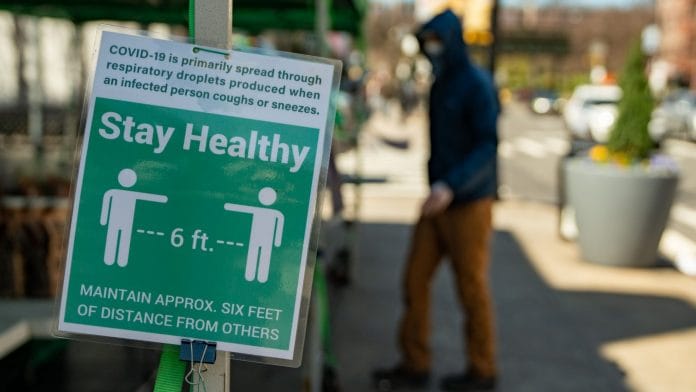New Delhi: As the coronavirus pandemic continues to wreak havoc across the world, scientists are racing against time to develop new tools to fight Covid-19.
If on one hand new drug trials are being conducted, scientists on the other hand are trying to introduce algorithms and mathematical models in the battle against coronavirus.
ThePrint brings you some of the latest developments on Covid-19 front.
Clinical trial to assess anti-clotting drug for Covid-19
A team of physician-scientists at the Beth Israel Deaconess Medical Center in Massachusetts are enrolling patients in a clinical trial to evaluate a common anti-clotting drug for the treatment of Covid-19 patients with acute respiratory distress syndrome (ARDS).
The newly-launched trial follows a special report which the team has published in the Journal of Trauma and Acute Care Surgery. It suggests the use of tPA to reduce death of patients with ARDS.
An anti-coagulant which is naturally produced by the body, tPA was first approved by the US Food and Drug Administration in 1996 for use in patients experiencing heart attack, stroke and pulmonary embolism.
Also read: WhatsApp puts new cap on forwarded messages to counter Covid-19 rumours
Low-dose rapamycin may protect elderly
Scientists have proposed repurposing rapamycin and other drugs used to manage age-related disorders as a preventive measure to protect the elderly from SARS-CoV-2 infection.
Alex Zhavoronkov, chief scientist at the Biogerontology Research Foundation and the CEO of an artificial intelligence company Insilico Medicine, has said that geroprotectors with known safety profile could help older patients who are more susceptible to Covid-19.
Geroprotectors are drugs that counter age-related diseases and hence prolong life spans. These include rapamycin, nicotinamide riboside, nicotinamide mononucleotide, and metformin.
Algorithm to guide PPE usage
Researchers from the Stanford University have created an algorithm that protects surgical team members, performing emergency operations, from coronavirus infection.
The algorithm helps in deciding whether a medical staff should use personal protective equipment (PPE) while carrying out a surgery, based on the urgency of the procedure, potential for release of virus droplets at the site, and evidence that a patient is infected.
Countries across the world are facing PPE shortages and an algorithm such as this one can help hospitals make judicious use of available items.
New mathematical model to accurately predict disease spread
Funded by the US Army, researchers at Carnegie Mellon University and Princeton University have developed a new mathematical model that could offer insights on ways to improve predictions about future epidemics.
The model is based on how information mutates when it is transmitted from person to person and group to group.
The new model is based on the assumption that ideas and information spread and evolve among individuals in a similar way that a virus self-replicates, mutates and responds to selective pressure when it interacts with its host.
In their study, published on 17 March in the Proceedings of the National Academy of Sciences, the researchers have said that the mathematical model takes into account evolutionary changes of diseases and information into consideration.
The model has been tested against thousands of computer-simulated epidemics using data from two real-world networks — a contact network among students, teachers, and staff at a US high school, and another among staff and patients at a hospital in Lyon, France.
Neither surgical nor cotton masks effectively filter SARS-CoV-2
Surgical and homemade cotton masks were found to be ineffective in preventing the spread of SARS-CoV-2 in a study conducted at two hospitals in Seoul, South Korea.
The research, published in Annals of Internal Medicine, has found that when Covid-19 patients coughed into either type of masks, droplets containing viruses were released into the environment and as well as on external surfaces of the masks.
Researchers in this study had asked four patients to cough five times each onto a petri dish, first with no mask, then using a surgical mask, a cotton mask, and again with no mask. The team found SARS-COV-2 on all surfaces.
During any respiratory viral infection, face masks are thought to prevent transmission and this has led health care experts to recommend their usage during the Covid-19 pandemic.
With a global shortage of both N95 and surgical masks, which have been shown to prevent the spread of influenza virus, cotton masks have gained interest as a substitute.
Also read: ISKCON reports 5 Covid-19 deaths in UK, after 1,000 gathered for a funeral






